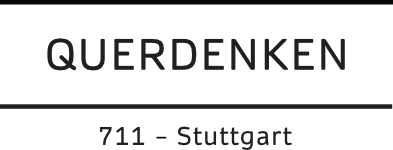Notice: This press release has been automatically translated. Original German Version.
Michael Ballweg Files Appeal Against Court Decisions on Protest Bans in August 2020
Two of the lawsuits were filed by Ballweg himself, while the third concerned the organizer of the march on August 29, 2020. In all three cases, the plaintiffs cite serious procedural deficiencies and a grave misjudgment of the legal framework by the administrative court.
Ballweg stated: “Getting justice in Germany can take veeeery long. It took more than four years just to get a hearing on our case regarding the events of August 2020. The police create facts—knowing that courts won’t decide for another 5 to 7 years. That’s not legal protection; that’s a systemic failure.”
The reasoning behind the appeal must be submitted within one month. A decision on whether the appeal will be heard may take years.
Background: Police Actions Remain Unexamined
The Berlin Administrative Court based its decision primarily on the argument that mask and distancing rules had not been followed. However, the actual conduct of the police—such as the lack of communication with the assembly leader or the setup of the gathering area—played no role in the court’s legal assessment.
Ballweg expressed his disillusionment with the hearing: “You go to court with the illusion that the other side has to justify its actions. But they didn’t have to at all.”
Ludwig: No Engagement with Core Arguments
Attorney Ralf Ludwig sharply criticized the ruling as a “fairy tale hour.” He pointed out that the Robert Koch Institute had publicly stated as early as summer 2020 that there was no medical justification for a mask mandate outdoors—yet this was used as the primary reason to dissolve the demonstrations.
“The court did not examine whether less restrictive means were possible. The police made no effort to coordinate with the assembly leader, nor did they consider medical mask exemptions or household memberships. This ruling doesn’t protect basic rights—it protects the authorities,” Ludwig said.
Criticism of Political Influence on the Judiciary
Ludwig was particularly critical of the career path of the presiding judge, Dr. Wilfried Peters, Vice President of the Berlin Administrative Court. Peters had previously worked for the SPD in the Brandenburg Ministry of Justice early in his career, before quickly ascending to Vice President via a brief tenure at the Higher Administrative Court.
Ludwig emphasized: “Judicial appointments must no longer be politically motivated. Careers in the judiciary must be based on independence, not party affiliation.”
A Call for a Genuine Rule of Law
The appeals are not only aimed at correcting specific rulings—they are also a signal against the failure of the rule of law at a critical point where citizens challenge state overreach. Ballweg summarizes: “We need a judiciary that protects basic rights—not overreaching authorities.”
QUERDENKEN-711 explicitly emphasizes in its manifesto (https://querdenken-711.de/manifest/):
QUERDENKEN stands for personal responsibility, self-determination, love, peace, freedom, joy, and truth. Those who stand for peace stand for non-violence. Those who stand for love reject all forms of extremism, racism, and antisemitism, both implicitly and explicitly.
Contact
For further information and press inquiries, please contact our team via the official press form: https://711.is/presseanfrage
Please use this form for press and interview inquiries and to join our press distribution list.
